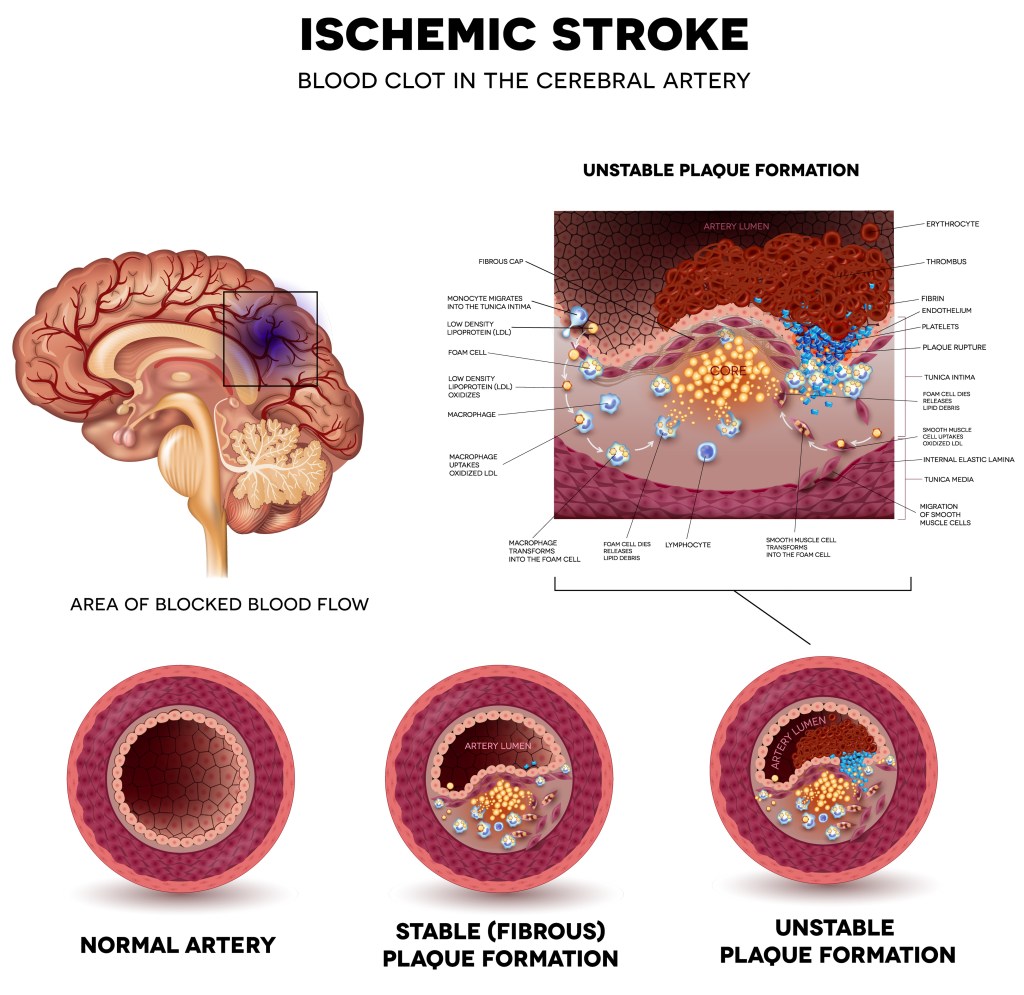Not for B-negative, but your blood type can offer a data for your risk of having a stroke before 60.
Researchers at the University of Maryland (UMD) found that people with type A blood are more likely to experience an early-on-start ischemic stroke caused by a blockage of blood flow to the brain with blood type O have a lower risk.
“The number of people with early stroke is increasing,” said Dr. Steven J. Kittner, Co-Parliamentary Study Investigator and Neurologist with UMD Medical Center. “These people are more likely to die from life -threatening event, and survivors potentially face decades with disabilities. Despite this, there is little research on the causes of early shocks.”

In a 2022 analysis, Kittner and his colleagues moved through data from 48 genetic studies, including 17,000 patients with stroke and nearly 600,000 healthy individuals who had never suffered a stroke. All participants were between 18 and 59 years old.
After reviewing their genetic profiles, the researchers discovered a possible link between the early shocks and the chromosome part containing the gene that determines whether your blood type is A, AB, B or O.
“The blood type association with a stroke later was much weaker than what we found with early strokes,” said Dr. Braxton D. Mitchell, the main investigator and professor of medicine at UMD.
After regulating sex and other factors, the team found that people with blood type O – the most common type of blood – had a 12% lower risk of suffering a stroke compared to other blood types.
Meanwhile, those with type A blood, which accounts for about 36% of Americans, had a 16% higher risk of suffering an early blow.
But before you rush to set an appointment of doctors, the researchers pointed out that they should not be scared or thrown into unnecessary medical tests based on the findings.
“We still do not know why the type of blood A would give a higher risk, but it is likely to have something to do with blood blockage factors such as platelets and cells that line up blood vessels, as well as other circulating proteins, all play a role in developing blood clots,” Kittner explained.

Blood clots are a leading cause of ischemic strokes as they block blood flow to the brain. Previous studies suggest that people with blood type A may be more prone to the development of foot clots, a condition known as deep vein thrombosis.
“We clearly need more study studies to clarify the mechanisms of increased risk of hitting,” Kittner said.
Researchers also noticed that their study had some restrictions, including the lack of diversity among the participants.
While shocks are more common in adults aged 65 and older, the number of cases in younger adults is growing globally.
In the US, the rate of ischemic shock among adults aged 20 to 44 increased from 17 per 100,000 adults in 1993 to 100,000 in 2015. The risk of death from young adults is also increasing.
For survivors, the physical number can be severe, often leading to sustainable cognitive deficits, visual impairment, coordination problems, weakness and paralysis. Mental influence is also severe, as many survivors of the blow also fight depression and anxiety.
Traditional stroke risk factors include high blood pressure, high cholesterol, diabetes, smoking and alcohol consumption. Obesity, an unhealthy diet and lack of exercise can also increase your chances.
“This study raises an important question that requires a deeper investigation of how our genetically predetermined blood type can play a role in the early risk of stroke,” said Dr. Mark T. Gladwin, Executive Vice President on Medical Affairs at UMD Baltimore. “This points to the urgent need to find new ways to prevent these potentially devastating events in young adults.”
#type #blood #increases #early #risk #stroke
Image Source : nypost.com